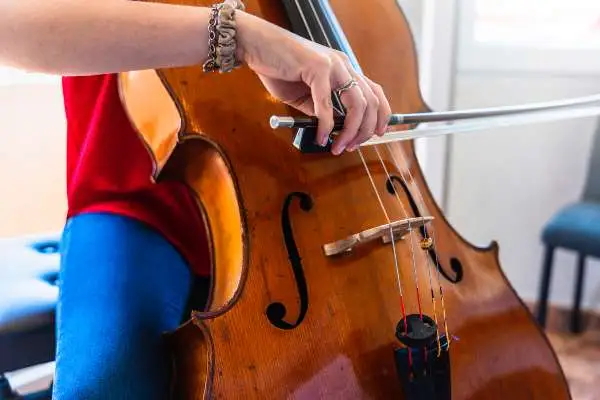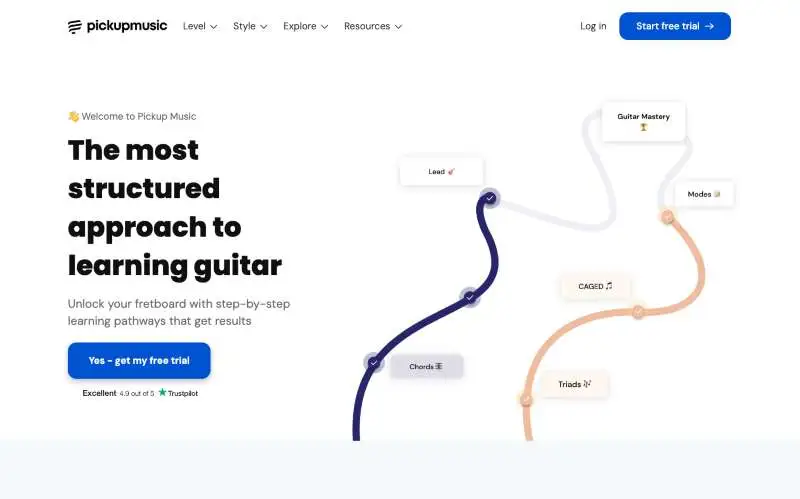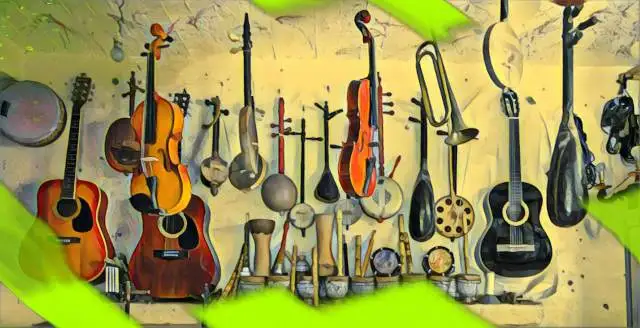When I first picked up the guitar, I was extremely excited, though in all honesty, I wasn’t totally sure what I was getting into. My fingers were fumbled and un-callused, I had absolutely no dexterity, and the idea of playing like the guitarists I looked up to felt a million miles away. However, there was also something magical about those initial moments, as I had been given a promise early on by a music teacher of what could be if I stuck with it. 15 years and many guitars later, and I've made a career of playing.
Now, making a career out of learning a new instrument might not be your goal. In fact, you might just want to be able to play a few chords on the piano at home whenever you get the itch to do something creative, and that's awesome!
Learning a new instrument in any capacity is a deeply rewarding experience that challenges and changes you. There's nothing quite like mastering a song that you love and seeing daily practice pay off. The process teaches patience, persistence, and creativity. Sure, it’s not always easy, but the rewards are undeniable.
In this article, I want to share some insights I've gathered over my many-year-long musical journey, including some tips that can help you get started, some common pitfalls to avoid, and some ways to keep growing, even when you feel you've hit a plateau.
Tip #1: Choose the Right Instrument
Picking an instrument is like finding the perfect pair of shoes. It needs to fit your goals, your style, and, quite literally, your hands. Before you dive in, take a moment to think about what you’re hoping to get out of playing. Are you dreaming of playing in a band? Maybe you’re looking for a creative outlet after work or hoping to unwind with some noodling at home. Your goals can shape what instrument might suit you best.
Then there’s the practical side of things.
Some instruments are more physically demanding than others. A guitar, whether an electric or acoustic guitar, requires a fair bit of finger strength and stretching, while a clarinet might take time to build lung capacity. The size and weight of the instrument also matter. If you’re petite, a bulky upright bass might be a challenge to manage, while a ukulele might feel just right.

Don’t forget to factor in costs. Different instruments vary widely in price, and you’ll often need extras like cases, tuners, or reeds. While rarer instruments like a bassoon might have a unique charm, they can also be harder to find and maintain compared to more common options like a keyboard or drum kit.
Still unsure? Try before you buy!
Borrow, rent, or visit a music store to test out a few options. Sometimes, holding an instrument in your hands is the best way to know if it’s a match.
Tip #2: Set Realistic Expectations
When you learn a new instrument, it can feel like learning to walk all over again. The truth is, progress often comes in small, steady steps rather than giant leaps. Adopting the right mindset from the start can make all the difference. Instead of expecting perfection right out the gate, focus on the process. Every wrong note, every clunky transition is part of the learning curve.
One way to stay motivated is to set both short-term and long-term goals .
A short-term goal might be playing a major scale without hesitation, while a long-term goal might be learning how to improvise while playing with a group of people. The key here is to break things down into manageable chunks, so the journey doesn't feel overwhelming.
Also, be prepared for some challenges.
When I was learning to play acoustic guitar, for example, I developed a lot of calluses from having to fret the strings. It also used to hurt to play barre chords. For piano, it might feel uncomfortable to stretch your fingers, or if you're learning to play trumpet, your lips might get chapped. The good news is that all of these hurdles ease with practice and patience.
While you're at it, remember: Don’t wait for big milestones to pat yourself on the back. Celebrate the small wins along the way!
Tip #3 - Build a Strong Practice Routine
Getting good at a musical instrument requires muscle memory, and anyone that exercises or plays sports knows that the best way to develop muscles is with consistency .
It’s much better to practice a little every day than to cram in a marathon session once a week. Daily practice not only helps build muscle memory faster but also keeps you motivated, as you make music a regular part of your routine.
I like to structure my practice sessions for a little over half an hour as follows:
- Warm-ups (5 minutes) : Start with exercises that get your fingers, breath, or embouchure moving. Scales are a classic warm-up for a reason, as they warm up your muscles and set the stage for more challenging work. You can also try arpeggios or simple drills if scales feel repetitive.
- Focused Learning (20 minutes) : This is where the magic happens. Spend this time on one piece or technique you’re working to improve. Break it into smaller sections if needed and tackle the tricky parts first.
- Fun Time (10 minutes) : Reward yourself by playing something you love. It could be a favorite song, improvisation, or simply experimenting with the sounds your instrument can make. This part keeps your passion for music alive and reminds you why you started in the first place.
It's equally important to mix things up so you don't experience burnout. For instance, if one piece starts to feel frustrating, switch to another or try a different style for a day.
I also recommend keeping a practice journal to jot down what you worked on each day, so you always have a record of how far you’ve come. This can become a powerful reminder on days when progress feels slow.
Tip #4: Learn the Basics First
When you’re starting out, it’s tempting to skip the basics and jump straight into trying to play your favorite songs. But the truth is, a solid foundation is what sets you up for success.
Scales, posture, and rhythm will become the building blocks of everything you play.
It's hard to get too deep here, as each instrument has its own specific requirements for how you should hold it or play it. Just know that getting this right from the beginning makes everything else easier.
Knowing how to curve your fingers on a piano or angle a bow on your violin can make playing more comfortable and controlled. The last thing you want is to develop poor habits right out the gate, as they're much harder to break when they're already ingrained.
From there, work on basic exercises. Scales and arpeggios are great for training your fingers and muscles to move fluidly. If you’re learning percussion instruments, try basic rudiments as a way to build the foundation for more complex playing.
The moral here is focus on getting each element right, even if it feels tedious at first. Being precise in every action will save you time and frustration later.
Tip #5: Find the Right Resources
Luckily, learning a new instrument is easier than ever, thanks to the fact that there are a wide range of resources at your fingertips. You can take the traditional approach with one-on-one instruction or explore the vast cosmos of online resources.
Private teachers or music schools are great for those who want personalized guidance and accountability. A good teacher can correct mistakes in real time and adapt lessons to your progress. If you thrive with structure and feedback, this approach might be your best bet.
On the flip side, YouTube tutorials and online courses let you learn at your own pace and often at a lower cost. While the flexibility is fantastic, you just need to make sure the sources you choose are reliable.
Side note - Pickup Music is one of my favorite learning platforms for guitarists, and I highly recommend checking it out:

Anyone with an internet connection can upload a video, though it doesn't mean they're an expert.
And with that, a word of advice: not all resources are created equal.
Before you commit to a book, app, or teacher, do some research. Look for reviews, recommendations, or sample lessons to ensure you’re investing your time wisely. The right support system will help you stay on track and make your learning experience both effective and enjoyable.
Tip #6: Find Ways to Overcome Plateaus
At some point, every person that plays a musical instrument will hit a plateau.
You’ve been practicing, but it feels like progress has stalled. Boredom creeps in, frustration builds, and you start questioning if you’re improving at all. The truth is, these plateaus are a natural part of learning. Rather than thinking of them as a sign that you’re failing, think of them as a sign that you need to challenge yourself in new ways .
One of the best ways to break through is to shake up your routine. If you’ve been playing the same pieces for weeks, try something completely different. Try playing a new genre or test out a different technique.
Feedback is another powerful tool.
You might consider reaching out to a teacher, a peer, or even someone in an online community specific to your musical instrument that can provide you with a fresh perspective. They might notice things you’ve overlooked or suggest techniques you hadn’t considered.
Don’t be afraid to experiment, either. If you usually stick to classical music, for example, try a pop tune or a jazz standard. Learning a different style can stretch your skills and be a reminder of the joy of exploring music.
I also recommend recording yourself when you play. When you listen back, you’ll notice subtle improvements that might not be obvious during practice. It’s also a great way to pinpoint areas that need work.
Tip #7: Play with Others
Many people who learn a new instrument think of it as a personal journey. However, we often forget how inspiring and motivating it can be to play with others. Plus, collaboration challenges you to improve in ways that solo practice can’t. It sharpens your timing, deepens your understanding of dynamics, and teaches you how to adapt to the unexpected.
There are many ways to go about this.
You might look for opportunities to join a band or an orchestra, or just jam with a buddy. You’ll not only build confidence in your own playing, but it's a great way to pick up new techniques from others.

For those who can’t meet in person, virtual collaborations are a fantastic option. Apps like Acapella or Bandlab let you record and layer parts with musicians anywhere in the world. It’s a great way to experiment with new sounds, styles, or arrangements, all from the comfort of your own space.
Also note that the key to good collaboration in music is listening . Really listen. Pay attention to the other players, their timing and dynamics, and how your parts fit together. Soon enough, you'll realize that playing music with others is one of the most rewarding aspects of being a musician.
Tip #8: Stay Motivated
Learning an instrument is a marathon, not a sprint. There will be days when you’re riding high on progress, and others when you feel too frustrated to keep playing. Staying motivated comes down to finding joy in the process and reconnecting with what made you want to play in the first place.
One of the easiest ways to keep the spark alive is to include music you love in your practice. Playing something familiar and enjoyable is one of the best ways to give yourself something to look forward to in your practice sessions.
While frustration is inevitable, it doesn’t have to derail you. When things feel overwhelming, take a step back. A short break, a walk, or revisiting an old piece you’ve already mastered can help reset your mindset. Sometimes, playing something simple and satisfying reminds you how far you’ve come.
To keep things exciting, set new goals as you progress . Maybe you try performing at an open mic or even composing your own music. New milestones can give you something to look forward to.
Tip #9: Embrace the Journey
And finally, my last tip is to embrace the journey. No matter how long you’ve been playing, there’s always something new to discover. The beauty of music is that it never stops evolving, and neither do you. Every new thing you learn is a chance to grow as a musician and a person.
Even after years of playing and practicing, I can safely say that the thrill of learning something new never fades. And though it may sound a bit hippy-dippy, the truth is, the journey itself is the reward, even beyond music.
Learning to play a musical instrument can strengthen your discipline and teach you how to stick with something even when it’s hard. It can also help you become a more creative person and deepen your appreciation for music.
Start Your Learning Journey Today
And there you have it, my essential tips for learning a musical instrument.
Learning to play a new musical instrument is one of the most rewarding adventures you can take.
Start by choosing the right instrument and setting realistic expectations for yourself, so you can build strong practice habits and collaborate with others. While you'll certainly face challenges along the way, having a bit of patience, creativity, and resourcefulness can help you overcome them and come out stronger.
Now is the perfect time to take that first step! Whether you’re picking up an instrument for the first time or expanding your skills with a new one, the key is to start . The challenges you face will only make the music you create that much more meaningful.





